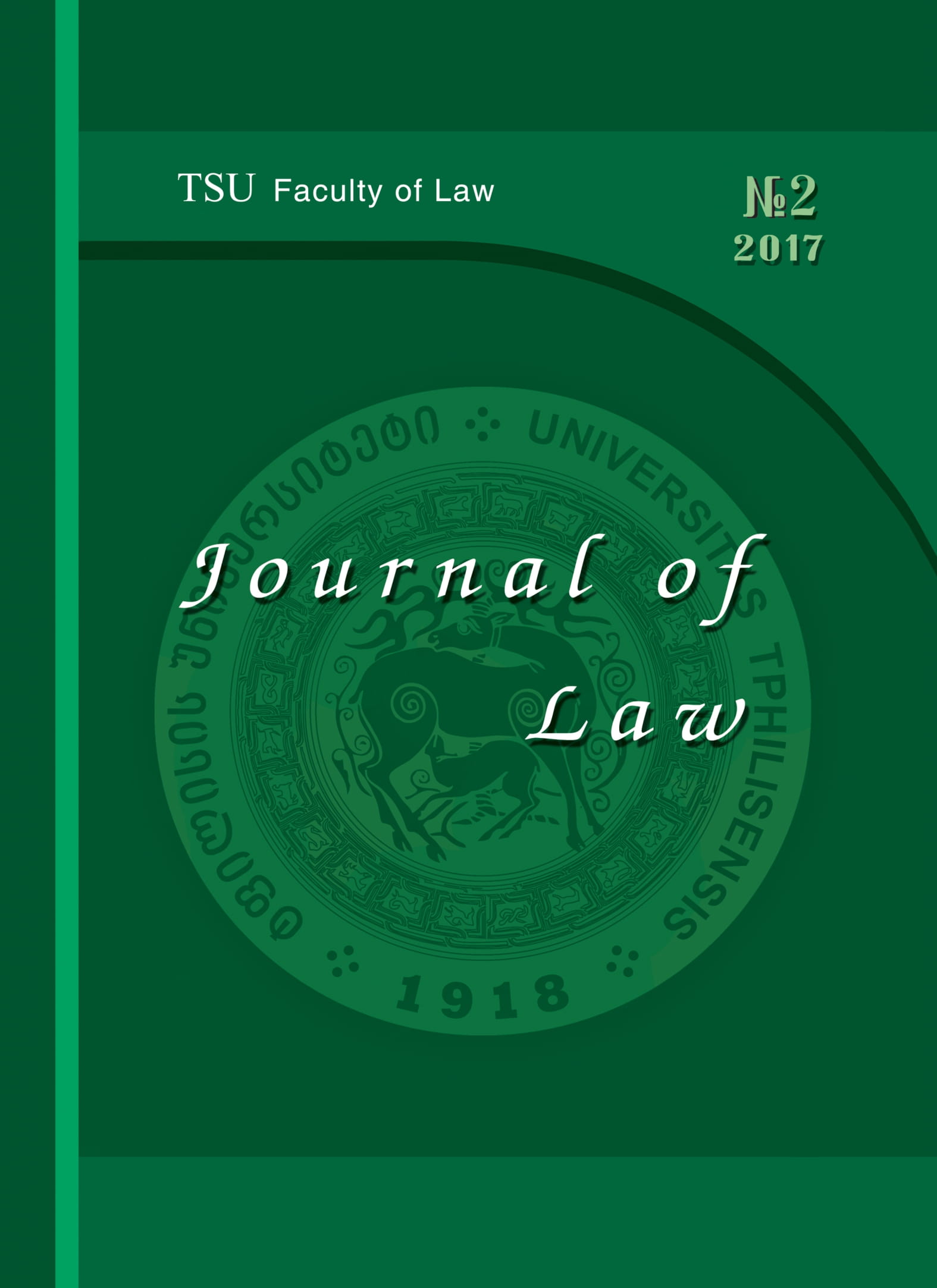Exempting bona fide Taxpayer from the Sanction on the Examples of Georgia and the United States of America
Keywords:
, tax, bona fide taxpayer, good faith, exemption from sanctions, preconditions for the exemption of from a penalty, a mistake/ignorance, discretion, burden of proof.Abstract
The present article is dedicated to the research of the legal regulation and practice of using good faith to relieve taxpayer from sanctions. The notion of bona fide tax payer is a novelty for tax law. The norm, in question, does not give possibility to determine preconditions for application of the norm in which revenue authority, dispute settlement authorities and courts were entitled to exempt tax payer from the imposed sanction. Consequently, the issue of its use in practice becomes more relevant and interesting. The legal norm on exemption from sanction of taxpayer gives comprehensive discretion to taxation authorities and court to assess an act of taxpayer in each particular case and thus it invokes the establishment of incorrect practices and the formation of different approaches. In this regard, the discussion in the article is based on the comparative analysis of the legislation and practices of Georgia and the United States of America. The main features of the American regulation, which are given in the article, provide the opportunity to learn about the experience of the most successful tax system.
The article discusses and evaluates current practice of tax authorities and the courts as well. As far as practice and literature about the issue of exempting bona fide taxpayer from the sanction is one of the less researched issue and consequently it is quite controversial one. According to author’s opinion it is necessary to specify the norm, to interpret correctly the preconditions of the use of the norm and establish the burden of proof is crucial too, in order to guarantee public and private interests in the dispute process.
References
Administrative Procedure Code of Georgia, 14/11/1997.
Civil Code of Georgia, 26.06.1997.
Civil Procedure Code of Georgia, 23/07/1999.
Taxation Code of Georgia, 17/09/2010.
Gvaramadze T., Dissertation Legal grounds for tax liability (Comparative legal analysis), 2012, 164,169.
Internal Revenue Manual - 29.1.1 Introduction and Penalty Relief.
Ioseliani A., Principle of bona fide in the Contract Law (Comparative Legal Analysis), Review of Georgian Law – Special Edition, 2007, 7, 12, 20, 34.
Liluashvili T., Liluashvili G., Khrustali V., Dzlierishvili Z., Civil Procedure Law of Georgia 2014, 258.
Nadaraia L., Rogava Z., Rukhadze K., Bolkvadze B., Commentaries to the Taxation Code of Georgia, Book One, 2012, 326.
Nachkebia A., Interpretations of administrative law norms in the practice of Supreme Court, 2015,10, 265, 266.
Painter K. McG., There`s no Place Like Home: Projections on the Fate of the Home Mortgage Interest Deduc-tion and the Tentative Minimum Tax in Light of Consumer Behavior, St John`s Journal of legal Commentary Journal, Vol.22, Summer 2007, 295.
Rogava Z., Taxes, Taxation System and Tax Law, Bakmi, Publishing House of Bondo Matsaberidze, Tbilisi, 2002, 325.
Taxpayer Advocate Service-2013 Annual Report to Congress, Accuracy-related Penalty Under IRC 662(b)(1) and (2), 343.
Zippelius R., Doctrine of Legal Methods, Beck’s Publishing House, Munich 2006,15, 130-132, 134.
26 CFR 1. 6664-4- Reasonable Cause and Good Faith Exception to Section 6662 Penalties, Cornell University Law School.
Decision №bs-222-219(k-14) of October 7 2014 delivered by the Chamber for Administrative Law Cases of the Supreme Court of Georgia.
Decision №9750/2/15 of 26 March 2015 of the Council of Tax Appeals under the Ministry of Finance.
Downloads
Published
How to Cite
Issue
Section
License
Copyright (c) 2018 Journal of Law

This work is licensed under a Creative Commons Attribution-ShareAlike 4.0 International License.









